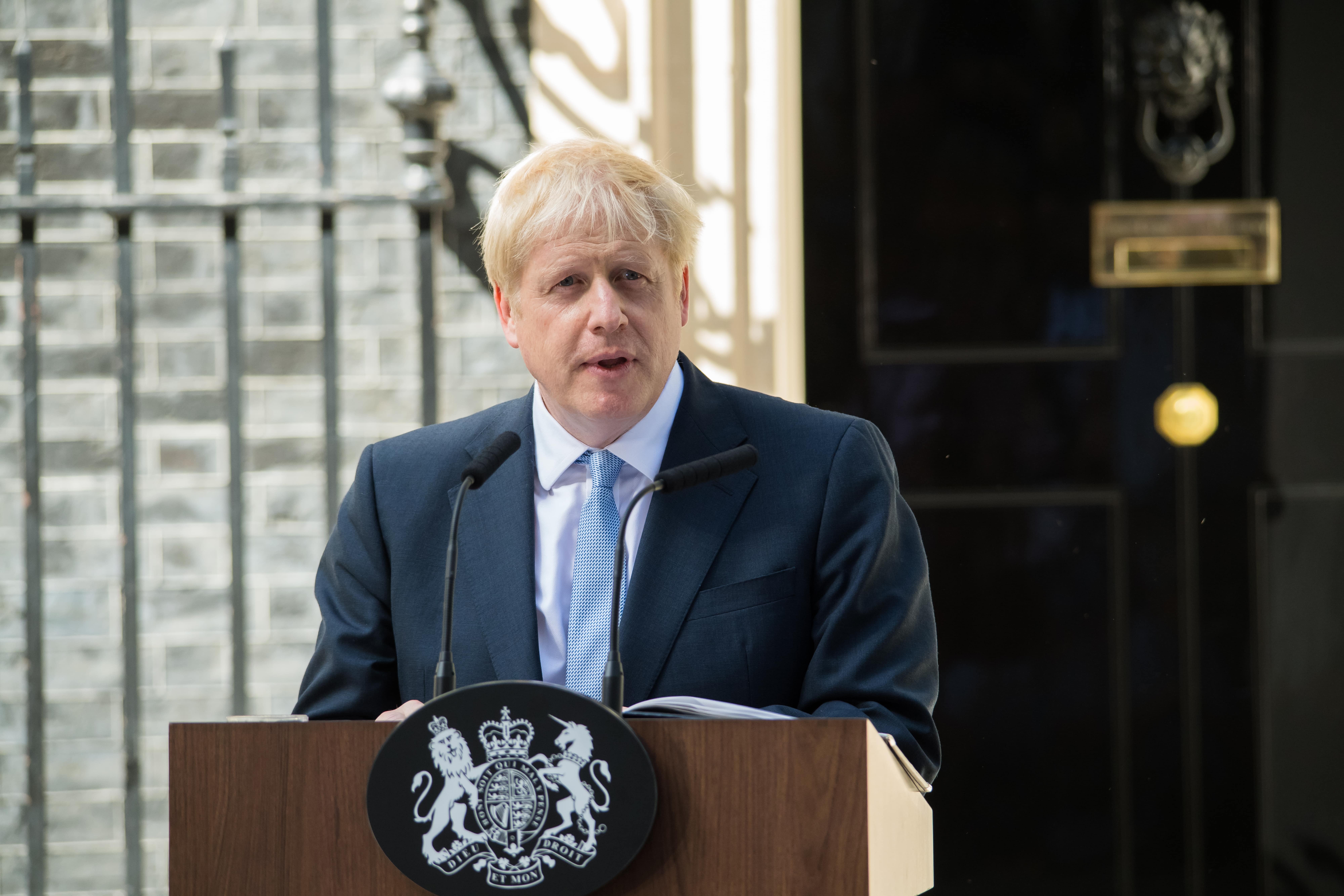Sector - Central Government
Budget 2021 Industry Reactions

On Wednesday, 27th October 2021, Rishi Sunak, the Chancellor of the Exchequer, delivered his long-anticipated Autumn 2021 Budget, here are some industry expert reactions to what was announced.
Sean Keyes, managing director, Sutcliffe: “The £1.8bn pledged towards brownfield housing developments is closest to our hearts as engineers and will make a real impact in making the UK more sustainable, as it’ll not only stop us from using Greenfield sites, but also help us clean up brownfield land.
“The digitisation of the planning system is also something I’ve personally spoken to a lot of local planners about in the past and the general consensus is that most people are struggling to meet planning times at the moment, which means projects then start at a slower timescale, which then halts the economy. Investment in speeding up the planning system is well received across the construction and property sector and something that has been a long time coming.
“The levelling up agenda needs to continue and needs to be pushed hard by the Conservative party – with levelling up all about creating equal job opportunities, higher life expectancies and a better way of life across the country and not just in the South, today’s budget will again go some way towards that, especially with the significant investment in transport links and stations in Liverpool, Runcorn and St Helens.
“As a company who has a long reputation for supporting the future generation, the £3bn pledge in post-16 education to fund the skills revolution will be a fantastic boost to the economy too. Every business needs to support those at the bottom rung of the ladder in order to nurture, inspire and up-skill, to ensure that those coming out of education at 16+ can flourish and build our future economies. This investment in the youth may not have an immediate impact, but if we don’t at least invest what our competitor nations are, then we will fall behind and I am delighted that programmes such as the Kickstart scheme are giving young people a chance to shine.”
Kevin Tully, managing director, Tulway: “We’ve got to find a way out of this pandemic and having already spent hundreds of billions of pounds to support people and businesses, it goes without saying that taxes will increase in order for the government to claw back some of this output. I’m hoping for a higher wage economy going forward and today’s budget goes some way towards ensuring that.
“Employers need to be involved more in the training funding process, rather than simply giving large amounts of money to colleges and universities for them to up-skill and train. The £3bn post-16 education to fund the skills revolution is fantastic news for our sector and for Tulway, as we pledge to take on 20 more apprentices between now and 2025.
“The green agenda is also going to open up an incredible amount of opportunities for businesses across the Liverpool City Region. A lot of people don’t realise how heavily involved the engineering sector is in the process of transforming from fossil fuels to green energy, but Tulway and many other businesses like us are playing a huge role in the net zero agenda and long may it continue.”
Alex Rose, Director of New Homes at Zoopla comments: “With the scarcity of homes and the imbalance of supply and demand set to continue well into 2022, the government’s pledge of £1.8 billion in funding to help deliver 160,000 new homes on brownfield land can certainly be viewed as a positive. However, with £300 million of this funding designated to metro mayors and councils to unlock smaller brownfield sites for housing, it is unclear how the balance of the funding will be allocated. With housebuilders often viewing brownfield sites as a less attractive option due to risks like contamination, it remains to be seen how far this investment will stretch in practice.”
Commenting on the Budget and the £1.8bn investment in brownfield urban land regeneration, Tom Brown, Managing Director of Real Estate at Ingenious, said: “The chancellor’s commitment to invest £1.8bn in brownfield urban land regeneration which is the equivalent of 2,000 football pitches is welcome. If channelled effectively this could improve the lives of millions of people across the country providing much needed new housing and spaces in areas that have been neglected for too long.
“Looking at the key sustainability agenda, this approach confirmed today should be prioritised over developing on other valuable green field sites which can cause loss of vital natural space. We would however welcome a further government commitment to the sustainable development of these brownfield sites so that where possible, existing buildings are preserved and sustainable materials are used.”
Graham Harle, CEO of Gleeds Worldwide, responds to the Autumn Statement: “Todays’ Budget, for us operating in property and Construction, felt a little like a hotly anticipated meal where Chef had leaked much of his surprise menu in advance & when it came to it, the showstopper was something of a soggy soufflé. For instance last weeks’ news on the Governments heat and buildings strategy, gave the Chancellor a chance to announce serious funding for a long term national retrofit programme to improve the energy efficiency of the UK’s 30 million buildings but we heard nothing and news of the much delayed revised integrated rail plan was also absent .
There was £1.5bn in new money to improve transport links which is welcomed plus £1.8 bn for brownfield residential building and £3.8bn to build new prisons. Investment relief on Business rates for Green improvements is also welcomed as were new discounts on rates for retail and hospitality. But when achieving Carbon zero is seen as a bigger issue by most people than Covid, the lack of investment in this area was a missed opportunity.”
Marc Vlessing, CEO of Pocket Living: “Whilst we welcome any support offered to boost levels of housing delivery in this budget, we believe that the Government needs to go much further to deliver intergenerational equality of housing opportunity. It needs to be bold, visionary and interventionist if we are to address the UK’s dysfunctional housing market and help more people achieve their aspiration of home ownership.
“A prime example would be around brownfield land release and the Chancellor’s funding announcement. This should be community led not council driven. Everyone has a role in solving the housing crisis and the fund should be open to all to innovate and find solutions on brownfield land. Only through incentives which encourage everyone to step up will the housing crisis be solved.
“At Pocket Living, we have been innovating and pushing the boundaries of housing further than most. We will continue to do so, irrespective of the barriers along the way, in order to unlock growth and housing opportunity. We strongly urge the government to do the same.”
Richard Waterhouse, spokesperson for NBS, said: “Whilst we welcome the chancellor’s investment in brownfield sites, which will no doubt help the sector meet Government quotas to tackle the housing crisis, stronger direction is needed around hard-deadlines and targets for how the construction industry plans to meet Net Zero target emissions.
“Its plans for a ‘skills revolution’ is also a step in the right direction and a significant investment in digital education will be perfectly timed to tackle the skills shortage the sector urgently needs to address. However, the chancellor should also look to address more immediate crises, such as a solution to materials shortages which isn’t currently hindering significant growth for the sector.”
Ben Hancock, managing director, Oscar Acoustics, said: “The rise in corporation tax is yet another blow to SMEs still recovering from the difficulties of the past 18 months. Further cuts to business rates would have sent a clear message that the Government is firmly behind companies looking to make a strong recovery and contribute to the country’s struggling economy.
Darren Caplan, Chief Executive of the Railway Industry Association (RIA), said: “Whilst it is positive to see confirmation of what looks like an additional £1.5bn of funding for regional transport projects, including in rail, this Budget appears to be a missed opportunity to unleash the potential of the railways in helping the country to build back better.
“There was no indication in the statement of whether long-term day-to-day funding of the railway network will be maintained at least at current levels in the years ahead. We still don’t know what is in the Integrated Rail Plan for the Midlands & the North, we still have uncertainty over major projects, such as HS2 Eastern Leg, Northern Powerhouse Rail and Midlands Rail Hub, and we still await an update of the Rail Network Enhancements Pipeline, now more than two years since it was last published.
“With COP26 just around the corner, too, this would have been a good time to set out the Government’s plans to reach a net zero railway, including a rolling programme of electrification and fleet orders of hydrogen and battery trains. These plans would have not just shown UK leadership in decarbonisation on a global stage, but would also significantly boost green jobs and investment, as the UK moves to a cleaner, post-Covid economy.
“There could also have been some clarification on areas like digital signalling, with 60% of traditional signalling needing replacing in the next 15 years. Our rail exporters need to know whether Tradeshow Access Programme budgets will be reinstated or replaced, so that they can play their part in helping the country deliver on Global Britain ambitions.
“It is clear that UK rail can play a leading role in the UK’s economic recovery, but to do this the railway industry really does need greater sight of, and input into, the Government’s investment plans. Visibility of these plans is vital to supporting effective, reliable and clean world-class railway infrastructure and rolling stock in the coming years, boosting the UK economy and its connectivity not just now, at this critical time, but also for the years ahead as we move on from the pandemic.”
Jim Wood, Managing Director of Barratt London, comments: “We welcome the support for housebuilding, increased investment in the planning system and the opening up of more sites on derelict and brownfield land. It is vital that we continue to increase housing supply to tackle the country’s shortage of homes, helping to create jobs and economic growth.
“The recent support for improving the energy efficiency and sustainability of new homes is welcomed – Barratt are helping to lead the way with the new Z House; our flagship zero carbon home delivering a carbon reduction of 125%. Barratt has a target to bring all of its new homes across the country, including London, to carbon zero by 2030.”
Commenting on today’s Budget, Stuart Law, CEO of the Assetz group, said: “We welcome the Chancellor’s package of housing-related investment announced in today’s Budget, particularly the provision of affordable housing and improved use of brownfield sites. However, given the focus on green grants and the need for housing to become more sustainable in future, the Government must do more to support homeowners during this transition over the coming months and years.
“It is encouraging to see the Chancellor earmark funds for helping homeowners to make their properties more energy efficient, however the current support packages still represent something of a drop in the ocean in terms of what needs to be achieved and more can and should be done to support the move towards greener homes and mass consumer adoption. The new homes industry has been leading the way in meeting the Government’s ambitions for sustainable energy-efficient housing stock, and we anticipate that demand for newer, more environmentally friendly homes will increase substantially over coming months and years, attracting a significant premium as a result.
“Comparatively, older, historic homes could see a reverse in popularity as the additional costs associated with making them greener, as well as reducing mortgage lender appetite to fund inefficient homes, dampens demand and therefore price growth.
“We also heard the Chancellor encourage the Bank of England to raise interest rates to control inflation indicating that whilst both of these cost the government, and hence the taxpayer, more in debt servicing costs, he regards the risk of inflation to be greater on balance. We would agree and expect inflation to run ‘hot’ for some years to come whilst interest rate rises are likely to be more muted in our view.”
If you would like to read more stories like this, then please click here
Related Articles
More Central Government Features
- Risk Vs Reward: Labour’s ambitious plans for stalled housing developments
10 Jun 25
Labour’s plans to allow local authorities to take control of stalled housing sites signals bold intent to tackle the UK’s housing shortfall.
- Pagabo provides clarity on impacts of new NPPS and PPNs
12 Mar 25
The Labour government’s new National Procurement Policy Statement (NPPS) sets out strategic priorities for public procurement.
- How is the Procurement Act going to drive social value
24 Feb 25
The regulations laid out within the Procurement Act 2023 will go live today.






